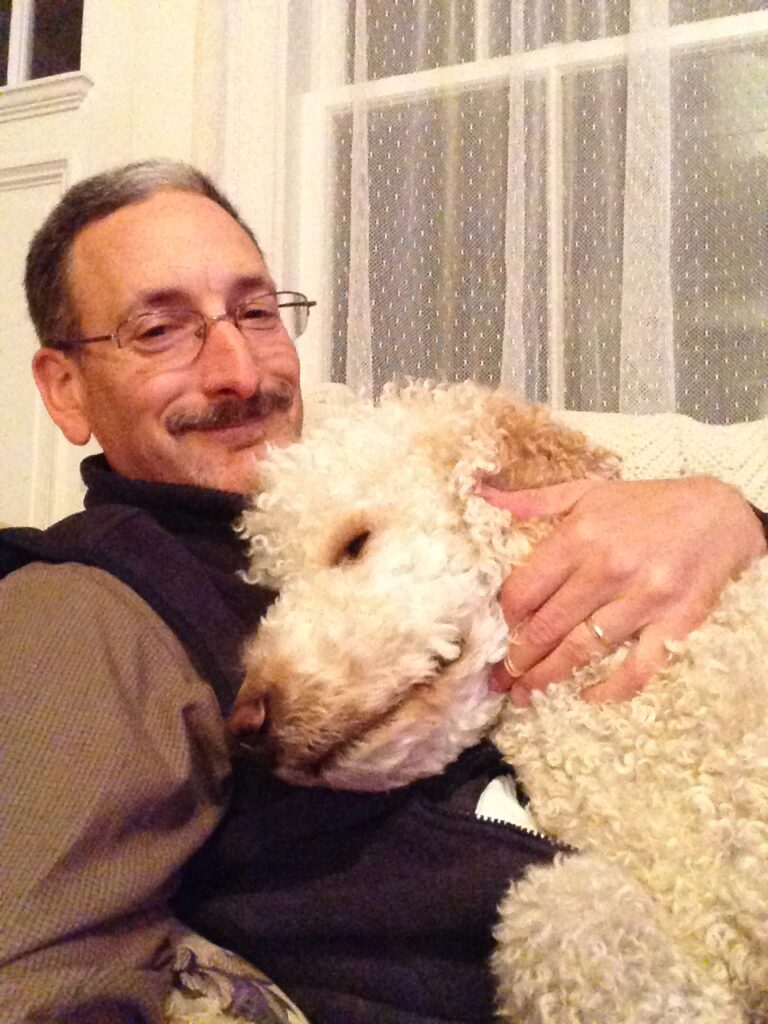
A Pet Loss Therapist Tips on Coping With The Death Of A Pet
As any knows who has experienced it, losing a beloved pet can be an incredibly painful and challenging experience. As a therapist and pet owner who has lost many pets, I understand the profound bond that forms between humans and their furry companions. Pets offer unwavering and unconditional, love, support, and companionship, making their loss similar to losing a cherished family member. In this article, I hope to provide guidance and support for individuals grappling with the death of a pet. Grief is a complex and personal journey, and while it may be difficult to navigate, there are ways to cope, heal, and honor the memory of your beloved friend.
Acknowledge and Validate Your Feelings
The first step in coping with the loss of a pet is to acknowledge and validate your feelings. The death of a pet can bring up some pretty strong feelings. It is important to recognize that the grief you are experiencing is real and valid. Allow yourself to feel the range of emotions that arise, whether it’s sadness, anger, guilt, or even relief. Every individual’s grief is unique, and there is no right or wrong way to grieve the loss of a pet. Reach out to friends, family, or even support groups specifically tailored to pet loss, as they can provide a safe space to share your emotions.
Don’t Second Guess Yourself
The circumstance around the loss of your pet play a big part in how you cope with the loss. For example, in the case of pet illness, many people ruminate over their treatment decisions or wonder if there was something they could have to done to prevent the loss. In the case of accidents or unusual traumatic situations, many people blame themselves or others for not being able to protect their pet. In addition, when a pet is believed to be suffering, many people find it difficult to cope with the fact that they had to make a decision to put their pet down. Many people feel guilt, anger or anxiety over this decision. While rethinking these decisions for a brief period of time can be helpful to prepare for any future challenges, once a decision is made it cannot be undone. We have to be kind to ourselves and realize that we did the best we could have given the circumstances.
What You Can Expect After Pet Loss
Although grieving the loss of a beloved pet is a deeply personal and unique experience, emotionally, there are some common reactions that can be expected. You may experience a range of emotions, such as guilt, sadness, anger, and even confusion. It is common to miss your pet intensely and to feel a deep sense of emptiness in their absence. Your daily routine may be upset as many daily activities revolved around your pet. You might also encounter physical symptoms like changes in appetite or sleep patterns. It is important to remember that these emotional responses are normal and part of the healing process.
Healing takes time, and everyone grieves at their own pace. As a psychotherapist, I am here to support you in navigating this difficult journey, providing a safe space for you to express your emotions and helping you find healthy coping strategies to honor the memory of your cherished pet.
After experiencing the loss of a pet, it is common for various reminders to trigger emotional responses. These reminders can be both expected and unexpected, as the bond we form with our pets often extends into many aspects of our lives. Here are some reminders that may evoke an emotional response:
Daily routines: Everyday activities that were once shared with your pet, such as feeding them, going for walks, or playing together, can become powerful reminders of their absence.
Physical spaces: Just being in the places where you spent a lot of time with your pet, such as their favorite place to play or their bed, can trigger a flood of emotions and memories.
Sounds and smells: Certain sounds or smells associated with your pet, like the jingling of a collar or the scent of their favorite toy, can evoke strong emotional reactions and remind you of their presence.
Other pets: If you have other pets at home, their behavior or actions might remind you of your lost companion, intensifying feelings of grief and longing.
Anniversaries and special occasions: Dates that hold significance, such as your pet’s birthday, adoption day, or the anniversary of their passing, can bring forth a surge of emotions and a heightened sense of loss.
Visual triggers: Seeing other animals, whether they are in person, on TV, or in pictures, can evoke a mix of emotions, ranging from nostalgia and joy to sadness and longing. Some people like to remove their pet’s stuff from their apartment or home as soon as possible because the visual reminders are triggering for them emotionally. Others just choose to, or cannot cope with, putting their pet’s stuff away so quickly.
There is no right or wrong way to do this. It is whatever is more comforting for you.
It is important to recognize that your reaction to these reminders are a normal part of the grieving process and things that trigger a reaction in you will typically reduce in intensity and frequency over time. It can be helpful to acknowledge your emotions, allow yourself to feel them, and find support from loved ones or a therapist who understands the unique bond you shared with your pet.
Take Care of Yourself
Try to create and stick to a daily routine without your pet. Do many of the same things you did that brought you comfort. For example, if you went for a walk every day with your pet, continue to go for a walk. During times of grief, it is crucial to prioritize self-care. The death of a pet can be emotionally and physically draining, so be gentle with yourself. Engage in activities that bring you comfort and solace, such as journaling, meditation, or spending time in nature. Engaging in regular exercise, maintaining a healthy diet, and getting sufficient sleep are essential for your overall well-being during this difficult period. Surround yourself with supportive friends and family who can provide a listening ear, when needed.
Dealing With Others
People can be very supportive when they hear of the loss of your pet. However, it is helpful to note that there are great differences among people in terms of how comfortable they are talking about loss. Some people will want to talk about it but some will not and may even avoid you. And then there are those people who will ask if you are getting another pet to replace the one you lost. While some people have no issues with replacing a pet quickly, others will need time to process the loss before they even consider getting another pet. It is important that you do what is right for you and not rush into getting a new pet unless you feel that is what you want.
Create a Ritual or Memorial
Some people like to remove their pets Creating a ritual or memorial can be a healing and meaningful way to honor your pet’s memory. Consider holding a memorial service or gathering where you can celebrate the joy and love your pet brought into your life. Planting a tree, creating a photo album, or making a scrapbook can also serve as tangible reminders of the special bond you shared. These rituals not only provide closure but also allow you to pay tribute to your pet’s impact on your life.
Adopting or Fostering
While it may take time to heal from the loss of a pet, some individuals find solace in opening their hearts and homes to an animal in need. Some people volunteer at a local shelter or foster a pet as a way to give back and fill the void left by their pet. Caring for an animal can provide a sense of purpose, joy, and even serve as a healing experience. However, it is crucial to ensure you are emotionally ready before taking on the responsibility of another pet. Allow yourself ample time to grieve and heal before considering adoption or fostering.
Seeking Professional Support
Losing a pet is an immensely challenging experience, and the grief that follows can feel overwhelming. Remember that healing takes time, and it’s important to be patient and compassionate with yourself throughout the process.
Sometimes, the grief experienced after losing a pet can feel overwhelming, and it’s important to know that seeking professional support is a valid option. Therapists and counselors who specialize in grief and pet loss can provide invaluable guidance and offer coping strategies tailored to your specific needs. They can help you navigate the complex emotions associated with pet loss and assist in the healing process. Don’t hesitate to reach out to us or another professional if you find that your grief is impacting your daily life or if you need additional support during this challenging time.
